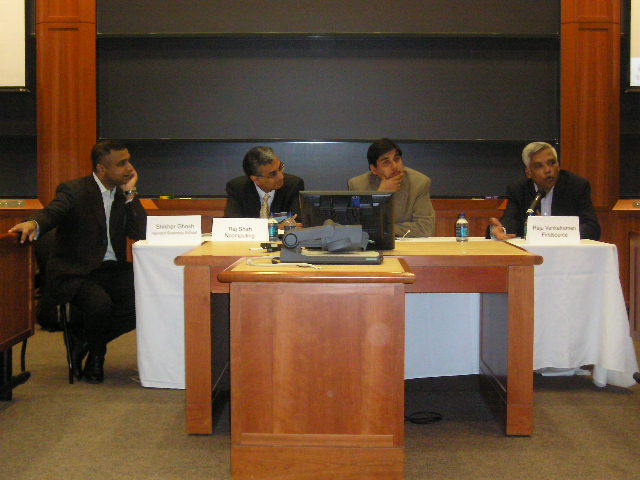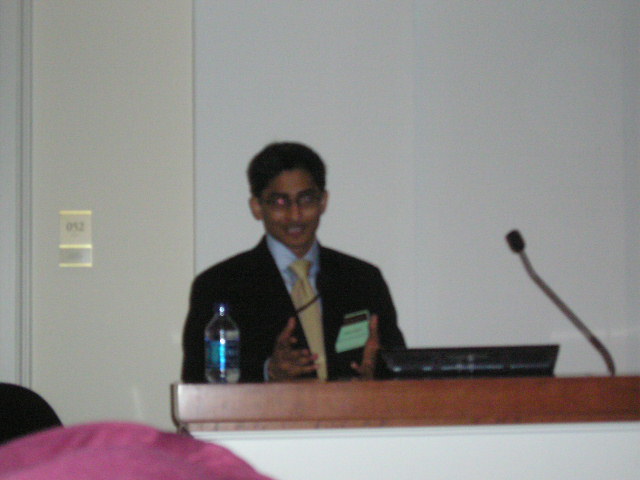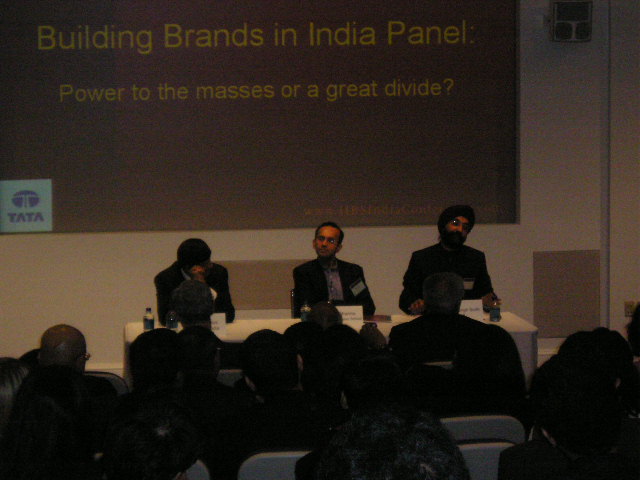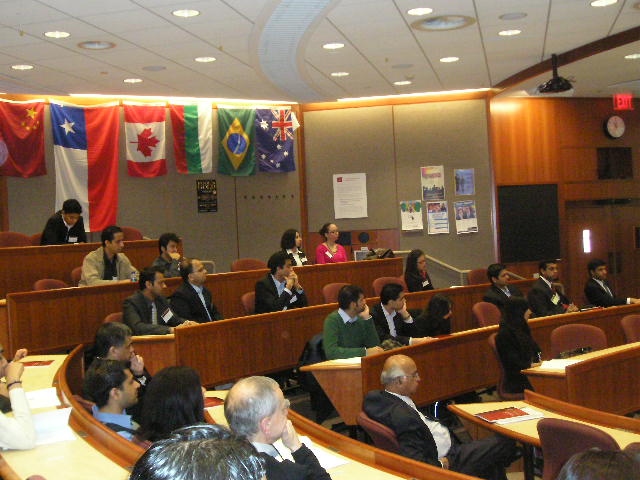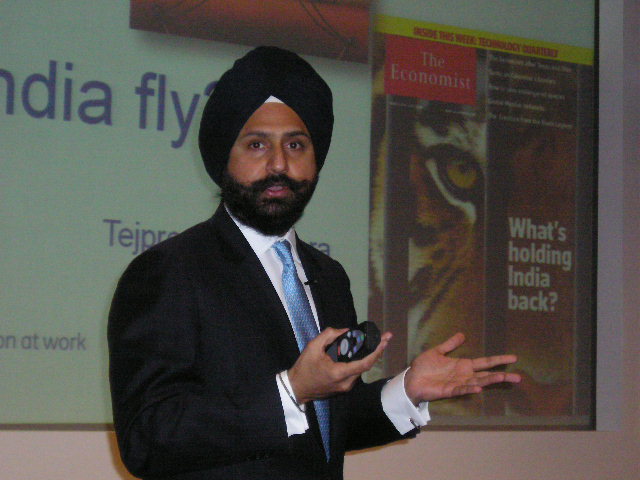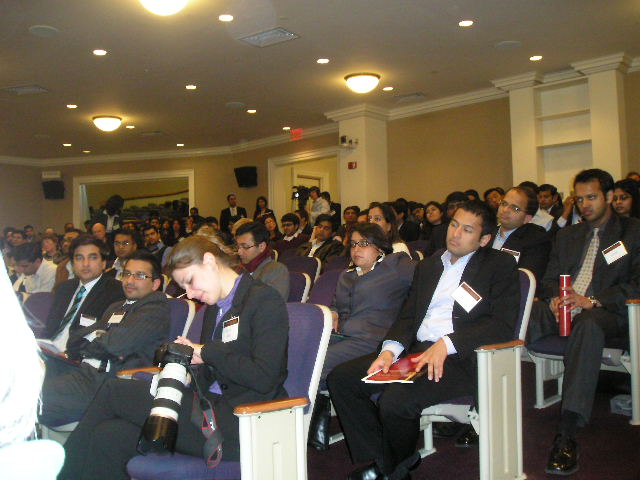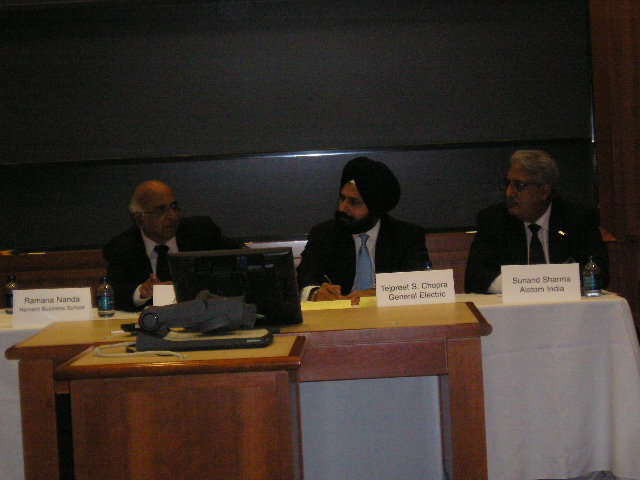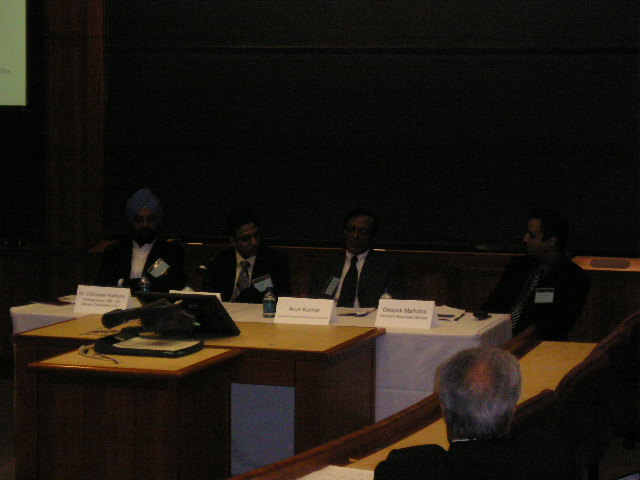Contribute
| HBS India Conference |
Ranjani Saigal
03/19/2009
The 2009 India Conference at the Harvard Business School titled “The Indian Growth Story: Sleeping Elephant or Roaring Tiger†was held on March 15th.
This year's conference featured presentations by prominent keynote speakers as well as twelve panel discussions / debates on the following areas: Building Brands in India, Energy, Entrepreneurship, Global Indians, Healthcare, Infrastructure, Knowledge Economy, Media and Entertainment, Private Equity, Retail, Social Enterprise and Venture Capital. The three conference Co-Chairs were Lavanya Anantharaman, Satya Raghavan and Abhay Sahoo while Devesh Khandelwal served as VP, Marketing.
This year’s keynote speakers included Nicholas Burns, Under Secretary of State of the US Government as well as the Chief Negotiator of the US-India Nuclear deal as well as TP Chopra, CEO of General Electric India. Some of the featured panelists included Indian business leaders such as RS Sodhi (Amul), Sunand Sharma (Alstom), Alok Agarwal (eValueserve), Sanjay Gupta (Dainik Jagran), Vikram Sakhuja (Group M), Anil Chawla (DE Shaw), Biswaranjan Sen (Unilever), Mohanjit Jolly (DFJ), Ramneek Gupta (Battery Ventures), and many more.
“As the global economy falters, companies are cleaning houses domestically before going to India. The fundamentals are there and have not changed. Even though it is the sane business, the way it is conducted is very different in India. It usually takes 3X longer and 3X more capital than one typically projects,†said Dr. Chirinjeev Kathuria, as part of the Global Indians panel. Arun Kumar, MD, Firestone Asia, emphasized the need to control and understand the distribution channels in order to succeed. Amit Patel, Sr. VP North America for Dr. Reddy’s Laboratories, talked about the cross cultural issues, such as what does it mean to shake the head a certain way, yes or no? This was reiterated by Deepak Malhotra of HBS, who underscored the point by saying that anytime you say anything you can expect to hear either “Ho Jayega or Ho Gayaâ€. What does that really mean? However, everyone agreed that the level of confidence has grown tremendously and competition in automotive and cell phone industries has helped improved quality and professionalism in those businesses.
TP Chopra, CEO, GE India said, “Even though the infrastructure is poor, the government is slow and bureaucratic, the education system is in crisis, fiscal deficit is high and there is liquidity crunch, the emergence of next generation of politicians, the favorable demographics, rise of Indian entrepreneur and economic structure gives him hope.†Some of the world class projects include the new Reliance refinery in Jamnagar, the new Tata Nano incorporating frugal manufacturing and Airtel with 90M subscribers with most of the backbone outsourced. In the area of energy, India need $600B investment over next 10 years in generation, transmission and distribution networks to triple its installed capacity.
According to Arun Vora, Former MD, Tata BP Solar, “India has 150 GW of installed capacity, with 57% controlled by state utilities, 32% controlled by the central government and 11% privately. 66% is thermal based, 25% hydro and about 5% is renewable. Yearly per capital consumptions ranges from India - 600 KWh, China – 1300 KWh, Europe – 6000 KWh to US – 13000 KWh.†Even though India has the technology needed to develop solar power, India needs a time-bound energy policy to make it happen. Sunand Sharma, Chairman, Alstom India, focused on the need of electricity entrepreneurs, engineers doing real engineering with local applications such as developing corrosion resistant materials for the Himalayan waters which are ‘metal eating monsters’ and individuals with large project management skills for India to be globally competitive. Overall to succeed in India it is essential to work with local Indian teams as the government often does not talk to you directly unless you are ‘big’.
Nancy Barry , Dr. Pradip Kumar Sarmah and Zenia Tata were part of the Social Enterprise panel that was moderated by Abha Joshi-Ghani. They encouraged HBS students to return to India and use their skills to bring about development.
You may also access this article through our web-site http://www.lokvani.com/
